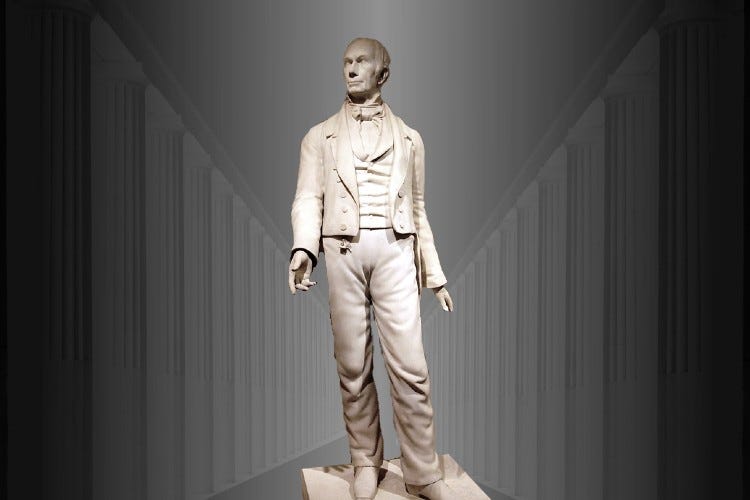Why Did the Whig Party Break Up and Why Am I Writing About the Whig Party?
And how was Henry Clay like Gene Simmons from KISS?

Let me address the second part of the headline first: I’m writing about the Whigs because I think their story contains lessons for modern American politics.
At some point, you may have considered it strange that the US only has two political parties. You may have thought this during the recent House Speaker showdown, in which the Freedom Caucus treated the rest of the GOP like an opposition party. There’s also a fairly clear ideological cleavage between The Squad and most Democrats. I would argue that we have (at least) four distinct philosophies in American politics: Left illiberalism (the ultra-woke), left liberalism (mainstream Democrats), right liberalism (Mitt Romney), and whatever the hell is happening in the Trump-y part of the GOP (I’m tempted to call it “severe cranial trauma”, but I’ll be polite and call it “MAGA-ism”).
And yet, there are only two major American political parties. Why? And where might these ideological cleavages eventually lead? Would either party ever split apart?
The Whig Party is the only major American party to ever fold. The only other party that arguably fits that description is the Federalists of the late 18th century, but they never really got off the ground. John Adams was the only Federalist president ever elected, and he spent his one term in a protracted rap battle with the other Federalist leader, Alexander “Founding Father of Hip Hop” Hamilton. Other parties like the Dixiecrats and the Bull Moose Party were never “major”. Most American third parties never achieve anything even as notable as having Dana Carvey play your presidential candidate in a series of really solid SNL sketches.
The Whigs began as a response to Andrew Jackson. The Jeffersonian coalition that dominated early 19th century American politics had mostly united behind Jackson; this formed the Democratic Party that still survives today (though the party’s stance on, say, LGBT rights has…well, “evolved”). In 1832, Jackson ran for re-election against three challengers, and it would be an understatement to say that he broke off an Old Hickory stick in their asses: Jackson won 219 of 288 electoral votes, with the remaining votes split three ways. Jackson’s opposition had to unite in order to have a chance.



